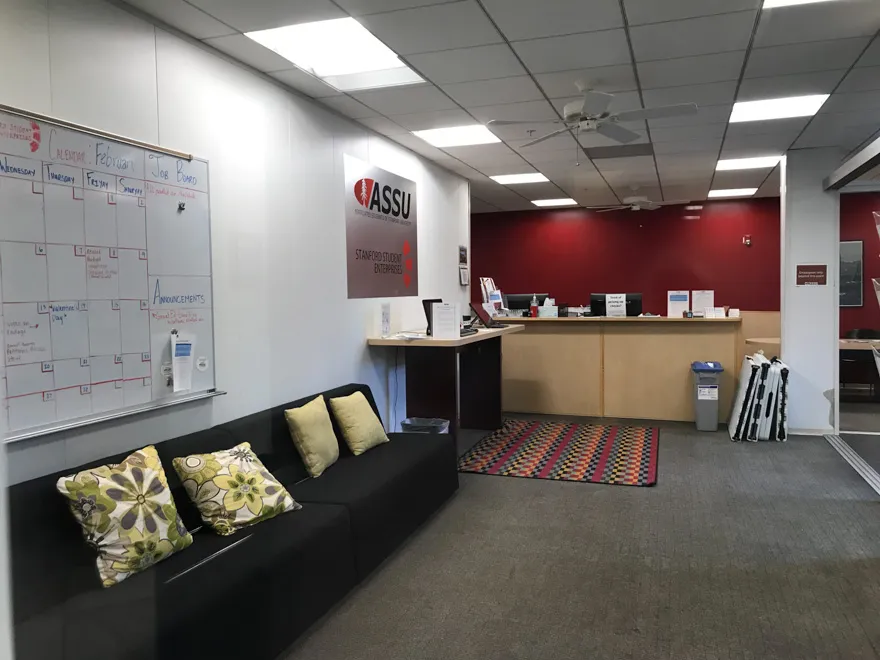“I had the aspirations that I would be a senator on campus and didn’t really think that anything would get in the way of that.”
That is what Alain Pérez ’23 thought when he first declared his intent to run for the Undergraduate Senate last spring. But when the pandemic sent students home for the rest of the year, new senators and incumbents alike had to adapt to serve a scattered student body and an entirely virtual workspace.
With Stanford’s election season underway, current undergraduate senators are reflecting on how they had to overcome pandemic-induced setbacks. The Daily sat down with three current senators to learn about their experiences virtually serving the student body over the last year.
March 2020 marked the Senate’s breakaway from its typical annual election cycle. In-person campaigns were forced to transition online in a relatively short time period — a move that left all candidates without any tangible plans.
“No one had really had experience with a completely virtual campaign,” said Gabby Crooks ’23, a new senator this year. She added that because the pandemic was new territory for everyone, new senators and incumbents alike were put in a position to learn together.
Crooks said that her definition of what it means to be a student leader changed, especially after trying to serve constituents all around the world. According to her, leading became a question of “how to really adequately serve all students in a place where we now don’t have this level playing field of all being on campus.”
Pérez, another first-year senator, found that connecting with students virtually has been especially difficult this year. He pointed to this year’s unsuccessful Senate Associate Program, where frosh interested in joining the Senate become “saplings” and are assigned their own senate mentor starting in the fall. Not a single student remained a “sapling” in the program despite multiple email blasts sent out to students.
The newly created Senate Aide Program, which allows students to work closely with senators as personal aides, also saw little success, according to Peréz. He said that his aide dropped the program after fall quarter, which added to his worry that the Stanford community may be increasingly less engaged in issues regarding the Undergraduate Senate.
Crooks said that a combination of time zone troubles and burnout with Zoom also likely contributed to less student involvement in weekly Senate meetings, where students can voice their concerns about any issues they face. Despite this, the ASSU has been looking for ways for students to communicate with senators without exhausting them, she said. One medium they’ve explored is sending email surveys to students on topics ranging from grading policies to Greek life. These surveys provide undergraduates with ways to participate on relevant issues.
Senator Jonathan Lipman ’21 said that this pattern of sending out surveys before pursuing action is important because it lets students figure out what policies are actually important to them before the ASSU steps in.
“I do think that there’s a bit of hope with the surveys that we send out,” Crooks added. “Students really were able to share how they felt, I think, in a medium that’s easier than coming on a Zoom meeting and saying how you feel.”
Despite being caught off guard by a virtual quarter, Crooks said that incumbents stepped up to help teach new senators, easing the transition into their role.
“I am grateful that there were people in place to really help us through even as they were learning to address [challenges] as well,” she said.
Lipman, who is serving his second term, acknowledged that new senators seemed to have had a “longer adjustment period than usual.” He attributed this change partially to the pandemic, but also added that the University is a complex place that requires a lot of inside knowledge to move issues forward.
Lipman also compared the workload of the current academic year to prior terms and said that the pandemic forced work to become a lot more independent rather than group-based. He mentioned that senators have attempted to arrange working sessions to encourage group work but said that there is less cohesion as a whole among senators.
Reflecting on his final few months as a senator, Lipman remarked that he would most miss the relationships formed with other senators along with how much everyone learned from one another during his time in office.
“I am super lucky to work with some brilliant, thoughtful, really kind people, the new people and the old people, so just very lucky in general,” he said.
